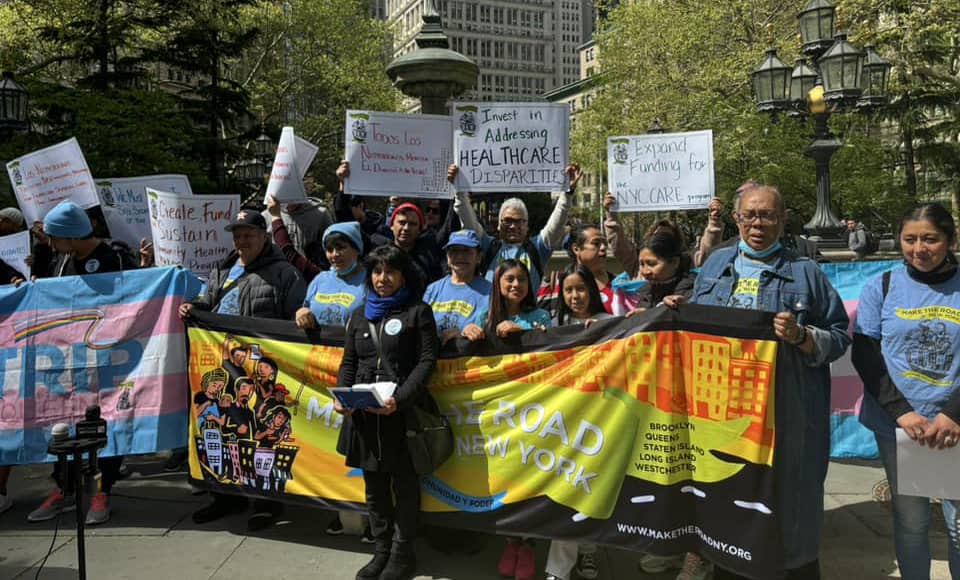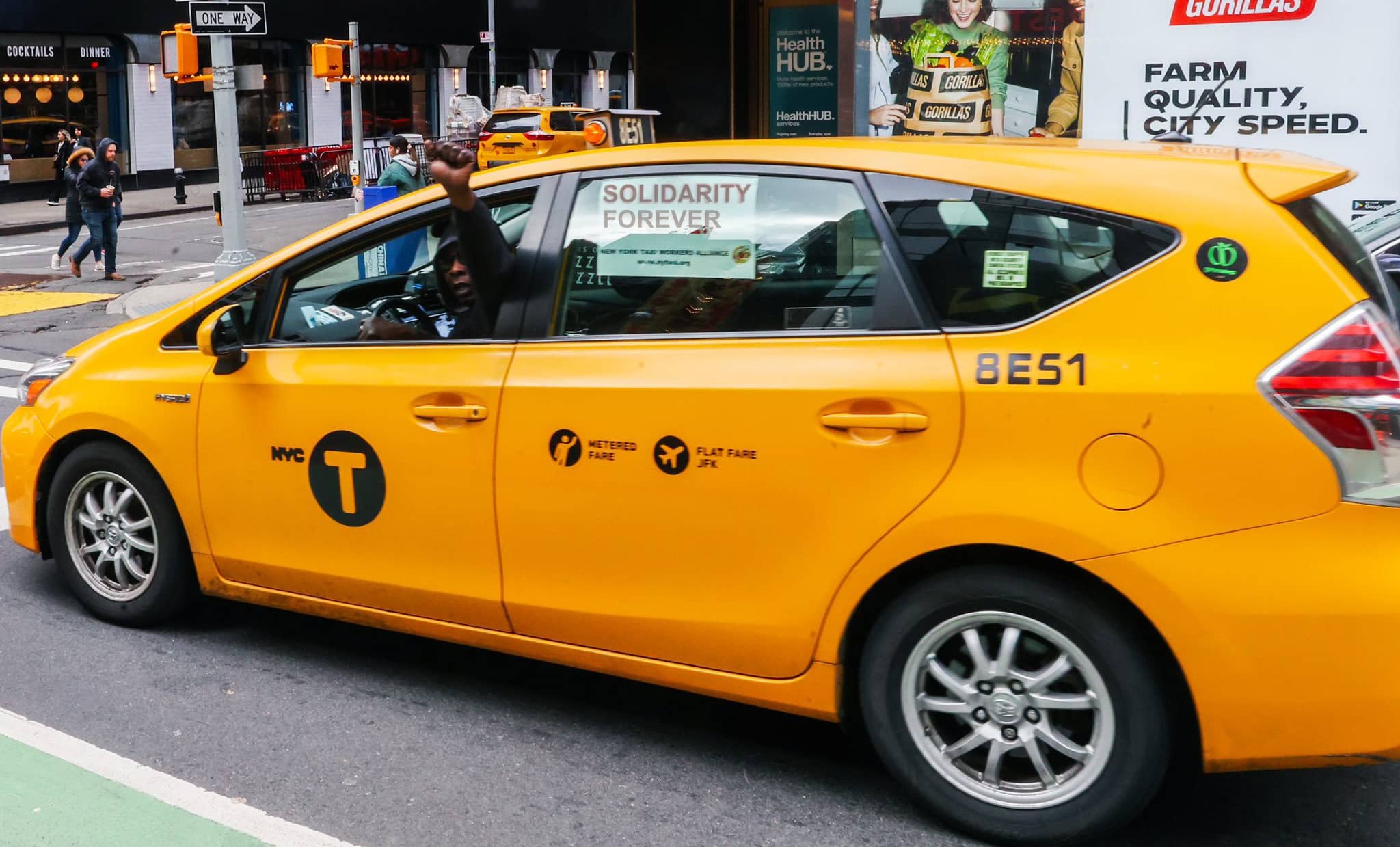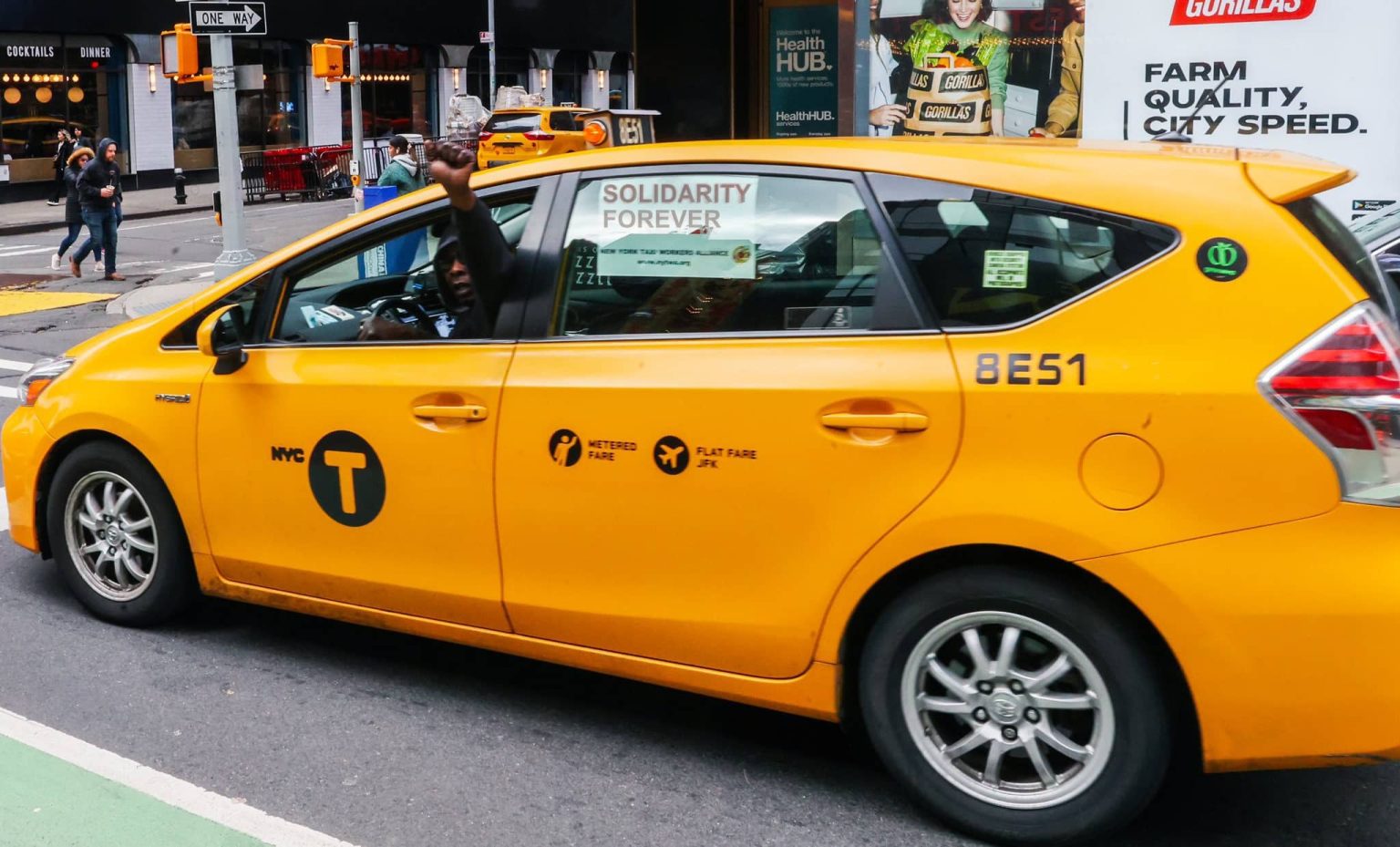
Dear friends,
As we swerve into August, heat is rising in the US presidential elections, in Israel’s state violence in the Middle East, and in the climate-fueled wildfires surging across the western United States. We wish you some cool breezes in your own worlds.
Today’s newsletter reports on the latest survey report from Make the Road NY on immigrants’ experiences here. We then invite you to send us your ideas about a possible mural project here in JH that celebrates the immigrant communities of Jackson Heights. We are inspired by the vibrant mural showing a portal that reflects who the Peruvians of Jackson Heights are and where they come from, recently unveiled near Northern Blvd. on 85th Street—renamed Calle Peru.
1. New York’s Newest Are Left Behind
Make the Road, NY annually surveys the experience of migrants and asylum seekers. For this year’s survey, they joined forces with the community urban planning group Hester Street, and the Bronx/Harlem community building organization, Afrikana. The latest report, “Leaving Behind the Newest New Yorkers”, was released in May and identified the shortcomings of welcoming asylum seekers to NYC.
Some of this year’s findings are similar to those of “Displaced and Disconnected”, their 2023 report. For example, access to legal services, healthcare, and social services provided by Community-Based Organizations, are all still crucial needs. The major difference revealed this year is related to housing. In 2023 there was just one recommendation: extend the CityFHEPS program to help people move from shelters to apartments by expanding eligibility for the program to include people who are undocumented. Expanding CityFHEPS remains on the 2024 recommendation along with three additional items: Expanding Temporary Shelter options; restoring Right to Shelter Protections; and allowing faith-based institutions to house new arrivals. That last item was a program announced by Mayor Adams in June 2023, which reportedly identified 50 houses of worship that could provide such housing—after 9 months only four were actively providing housing.
Another new finding is related to workers and labor development. While last year’s report recommended expanding the low-wage worker support program and funding for training, this year emphasizes extending work authorization for public jobs, allowing more positions to be filled by asylum seekers. There was also a new recommendation to invest $50 million in adult literacy programs and expand access to after-school programs, both of which help immigrants overcome language barriers and gain access to the workforce. The importance of literacy programs in Jackson Heights and Corona was recently highlighted when Literacy Partners, which has been active for over 50 years, was honored with the 2024 Mayor’s Office Community Impact Award.
One area that has not been modified from last year is the recommendations for Federal changes, showing that not much has improved nationally for asylum seekers:
- Expedite work authorization for asylum seekers.
- Send more resources to NY to support asylum seekers.
- Reverse efforts to undermine the asylum system.
- Expand and renew Temporary Protected Status (TPS) and Deferred Enforced Departure (DED) for countries affected by political unrest and natural disasters.
Several charts in the report give readers insight into the people surveyed and the varied levels of success they have accessing city and state services depending on race. One observation is that 93% of “Black single adults” had received notice to leave shelters in comparison to 66% of “Latine Single Adults”. Another chart highlights that, of people eligible for TPS, 69% have submitted their applications; in comparison, only 42% of those seeking asylum without TPS have submitted their applications. Among non-TPS applicants: only 17% of Black people have applied for asylum in comparison with 49% of Latine asylum seekers.
This year’s survey emphasizes images that Immigrants Are Essential, particularly in the US labor market, and that they are here to stay. One statistic notes the increasing percentage of people who want to stay in New York. Last year 67% of people said they would like to stay here even if they had an opportunity to live elsewhere in the US. This year that number rose to 86%. Once again we see a racial difference: 93% of Black immigrants would choose to remain in New York compared to 84% Latine. These new New Yorkers want to be part of NYC.
WHAT CAN WE DO?
- Volunteer with Literacy Partners to provide literary and language skills throughout the five boroughs of NYC.
- If you are able, donate to Afrikana, and support the work it provides to asylum seekers and migrants.
- Consider donating to Hester Street to support the racial and economic justice work they do at the neighborhood level.
2. Can We Have a Mural Project?
At our Jackson Heights Immigrant Solidarity meetings in the fall of 2019, we dreamed and we imagined banners hanging from local buildings, posters pasted on houses and in the windows of businesses, all affirming the beautiful power of our immigrant communities. We imagined monarch butterflies, slogans, and images showing our rich diversity, because behind us was the horror of having seen children separated from their parents and placed in cages. Unfortunately, Covid-19 came and our visions vanished with it.
Four years later, we want to dream again but now with your participation, readers. JH is an extraordinary community of diversity and struggle, an immigrant neighborhood driving most of its creativity and vitality. In short, we want to count on your support for the creation of a mural or two, as a way to promote solidarity and neighborhood pride.
Who do you know, recommend, propose that we can turn to (artists, writers, leaders) to design a mural project for Jackson Heights? Would you like to be involved in developing the project that would be presented to Flushing Town Hall for funding? Please let us know your suggestions and your desires about forming a committee to make murals a reality for the neighborhood–murals that speak for you and that illustrate what Jackson Heights is.
Send us your ideas at info@jhimmigrantsolidarity.org.
In solidarity and with collective care,
Jackson Heights Immigrant Solidarity Network (JHISN)
Follow @JHSolidarity on Facebook and Twitter and share this newsletter with friends, families, neighbors, networks, and colleagues so they can subscribe and receive news from JHISN.

